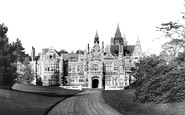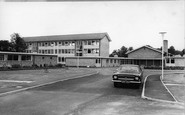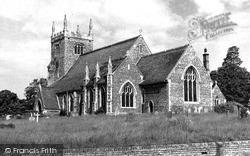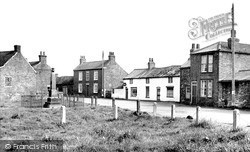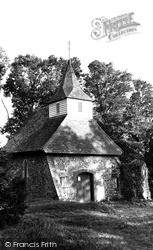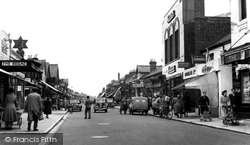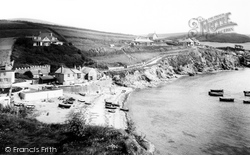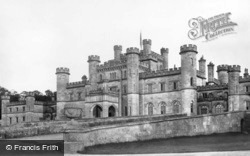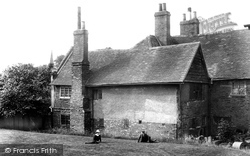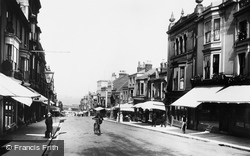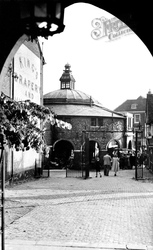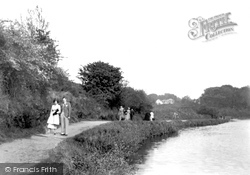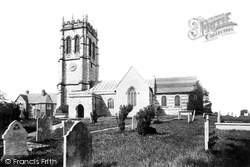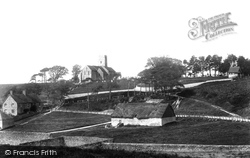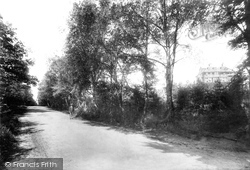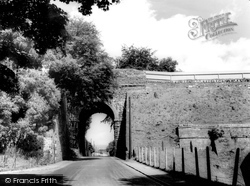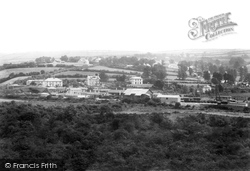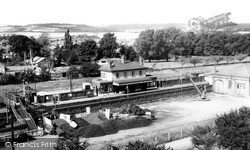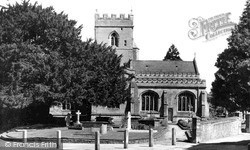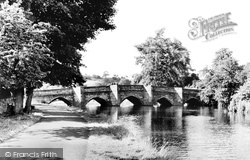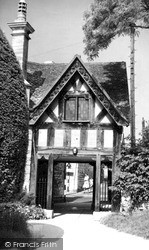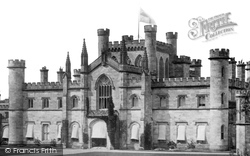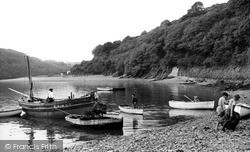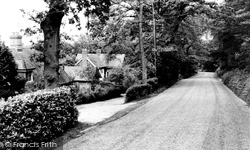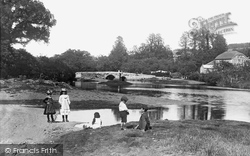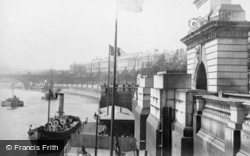Places
Sorry, no places were found that related to your search.
Photos
5 photos found. Showing results 721 to 5.
Maps
83 maps found.
Books
Sorry, no books were found that related to your search.
Memories
1,127 memories found. Showing results 361 to 370.
School In Bradford On Tone
I lived in Bradford in the bungalow my dad designed at the corners. We emigrated to Canada in 1958 - I was 7. My dad came over here first to get work as an architect and a home for us. My mum, older brother, ...Read more
A memory of Bradford-on-Tone in 1958 by
School Holidays In Bale
I have many fond memories of my childhood in Bale. I lived in Fakenham and used to spend some time with Nan, Grandfather and Auntie Carole in Bale. I remember going up to what Grandfather called 'plantin', which was just next to the council ...Read more
A memory of Bale
School Days
Before becoming the home of George Harrison of the Beatles, Friar Park was run as a school by sisters of the St. John Bosco order. This was my first school and I remember having to walk all the way to the main door along the ...Read more
A memory of Henley-on-Thames in 1960 by
School Days
I have fond memories recalling the time spent at the Junior school in Burnopfield which I attended from 1956 to 1962. The Headmaster was Mr John Morgan. He was an inspiring teacher, firm but fair, he made us children understand the ...Read more
A memory of Burnopfield in 1960 by
School Times
I go to this school now and it is very good. It has changed so much from the picture. Now in 2012 it looks so much better, the buildings are splended. Would anybody post a description of what it was like in 1960's.
A memory of Howden
School Holidays
My grandparents and my mother come from Llanbradach Plasturtwyn Terr; I spent every school holiday and Christmas there. I remember my nan sending me to Snook's shop for a couple slices of ham and putting it on the book to pay Friday. ...Read more
A memory of Bedwas
School Days Are The Best
I was born in 1952, and went to Bragar School. The headmaster was Mr McIver and teachers I remember were Mrs MacDonald (Carloway) and Mrs Mitchell (Shawbost). I used to cross the road to the shop up the hill, and also the ...Read more
A memory of South Uist in 1958 by
School Boy
I lived in Lochgoilhead in the late 1950's attending a small mixed school at the beginning of the village. My father, worked for the Admirality. My three brothers and sister, were born there. We moved to Carrick Castle in late 1952 and ...Read more
A memory of Loch Goil in 1950 by
School
Vague recollections of my first days, being taken in my little blue coat and cap by the girls next door. I seemed to cling to them for ages. (Was this a sign of things to come?) Finally graduated to playing with the boys, sliding in the ...Read more
A memory of Howden-le-Wear by
Scarrow Hill Is A Listed Building
Summary House, constructed in 1601; converted to mid C18 coaching inn, and later divided into a pair of cottages, now returned to a single dwelling. Reason for Listing Scarrow Hill is designated at Grade II for ...Read more
A memory of Scarrow Hill
Captions
1,233 captions found. Showing results 865 to 888.
The parish church of St Mary dates from about 1141, though much restoration work was carried out during the Victorian era.
These people had been the scourge of Skipsea Castle in earlier times, so much so that Henry III had to demolish the castle in 1220.
All that remains today is part of the chancel of a once much larger 13th-century church.
Much of the town dates from between 1890 and 1939, and many of its residents were employed by the railway.
Much of this bare hillside between Outer and Inner Hope has now been built upon, but the tiny church remains and the coast nearby is wild and spectacular.
This is not so much a castle, more a country house, built for the first Earl of Lonsdale by Sir Robert Smirke between 1806 and 1811.
To the right of the picture is a pile of pipes, stored here temporarily during much needed refurbishment of Hitchin's sewer system.
Much of its architecture dates from the 19th century, a reminder that the Victorians made this island their own as a holiday and residential location.
From the arches of the Georgian Guildhall the camera looks down White Hart Street. The buildings on the right replace medieval market place encroachment.
It could also have been so quiet because Belfast residents had so much choice when the time came for the essential walk.
The much- restored church was first built in the Middle Ages, and the Perpendicular tower is 15th-century.
Modern housing now occupies most of the area between the church and the photographer, and the rural aspect is much diminished.
Properties such as this gave rise to the description of 'The Blue Triangle', reflecting political affiliations of the day, and the term is still much in vogue among estate agents today.
This is one of the significant relics of the industrial past of the Ebbw Vale area, and at one time a busy railway line ran over the top of this arch.
On the left a wide-arched bridge takes Eastcliffe Road over the main line railway and past The Royal Hotel (now The Royal Inn), the first of three large buildings along the road.
By 1960 the population was well over 12,000, and it is much more today.
The interior has many fine features, including part of a Norman arch reused for a small window in the north transept, an octagonal pulpit with decorative tracery and inlaid marble, and
Bakewell's five-arched 14th-century bridge over the River Wye is one of its greatest glories. It is still carrying traffic 600 years after it was built.
Although it looks much older, the lychgate into the churchyard was built only a century ago. Its apparent antiquity stems from the fact that its timbers were taken from the former bell frame.
This is not so much a castle, more a country house, built for the first Earl of Lonsdale by Sir Robert Smirke in 1806-11.
St Anthony-in-Meneage is even more remote than Manaccan; it lies on Gillan Harbour, which is separate from the much larger Helford River and closer to the Lizard peninsula.
This leafy approach to the village of Hermitage remains much the same today as it was in the 1950s.
With its old cottages, stepping stones and ancient arched bridge, it possesses a unique, almost hypnotic serenity.
The imposing arch is in the monumental Egyptian style. In the background is Waterloo Bridge.
Places (0)
Photos (5)
Memories (1127)
Books (0)
Maps (83)



